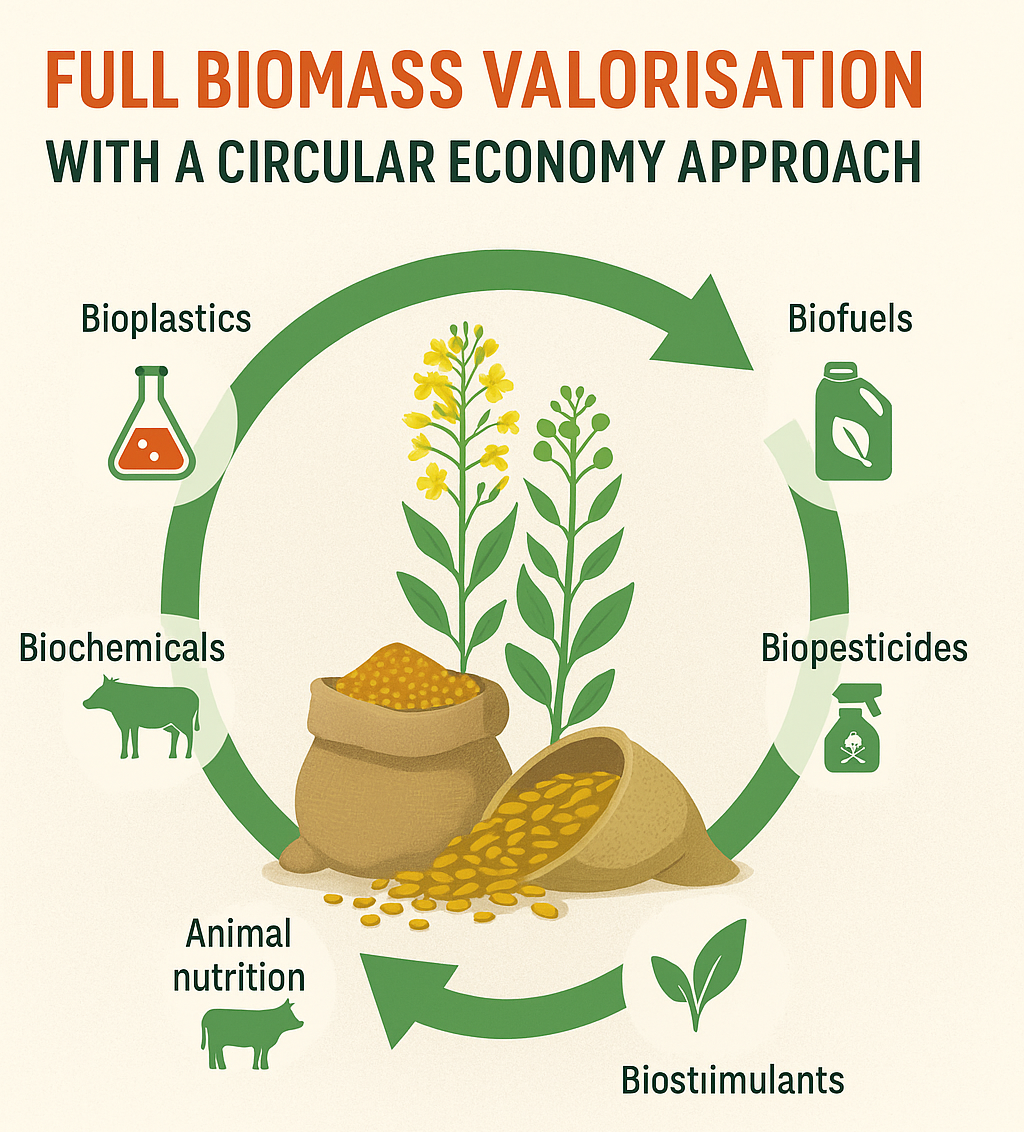As part of its mission to advance sustainable agriculture, the CARINA project is focused on the full valorisation of camelina and carinata biomass using a circular economy approach. The project aims to extract valuable molecules from co-products of these crops for diverse applications, including bioplastics, biochemicals, animal nutrition, biofuels, biostimulants, and biopesticides.
During the first period of the project, the physical and chemical characteristics of Brassica carinata and Camelina sativa seeds were analysed. Results indicated that carinata seeds contain higher levels of erucic acid than camelina. As a result, carinata oil has been used to produce dicarboxylic acids. Laboratory-scale tests confirmed the feasibility of using these acids to develop biochemicals with potential applications in bioplastics and biopesticides.
The project also investigates the optimal incorporation rate of camelina and carinata cake into animal feed, with inclusion levels ranging from 2% to 20%. Trials are currently underway, including zootechnical, palatability, and digestibility tests. Another key objective is to reduce glucosinolate (GLS) levels, an antinutritional factor, through heat treatment.
Further efforts are directed toward valorising GLS extracts from carinata seeds for potential use in biocides or phytosanitary products. Although challenges have been encountered in scaling up GLS extraction, these are expected to be resolved soon.
In addition, project partners have assessed camelina cake polysaccharide as a stabilising agent for nutraceutical formulations. This polysaccharide extract, produced at laboratory scale, is being explored for its ability to enhance the bioaccessibility of bioactive compounds.
Finally, a range of technological processes, such as enzymatic hydrolysis, ethanol extraction, fermentation, and pyrolysis, are being applied to different co-products with the goal of developing biostimulants and biopesticides.
Through these integrated research activities, CARINA continues to explore and demonstrate the potential of camelina and carinata in delivering innovative and sustainable bio-based products.

SUBSCRIBE TO A NEWSLETTER
Funded by the European Union. Views and opinions expressed are however those of the author(s) only and do not necessarily reflect those of the European Union or the European Research Executive Agency. Neither the European Union nor the granting authority can be held responsible for them.